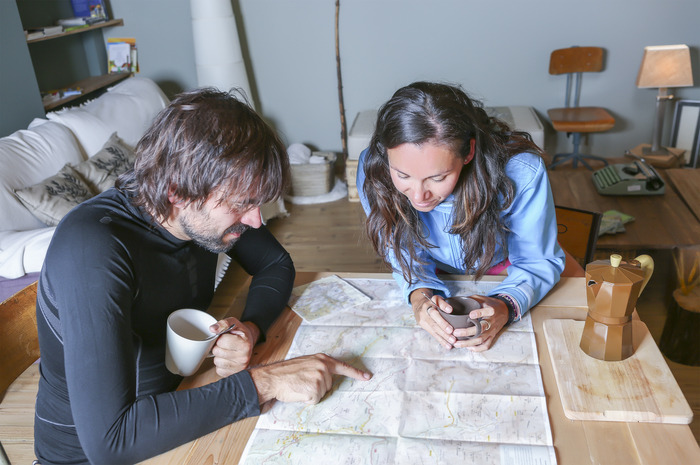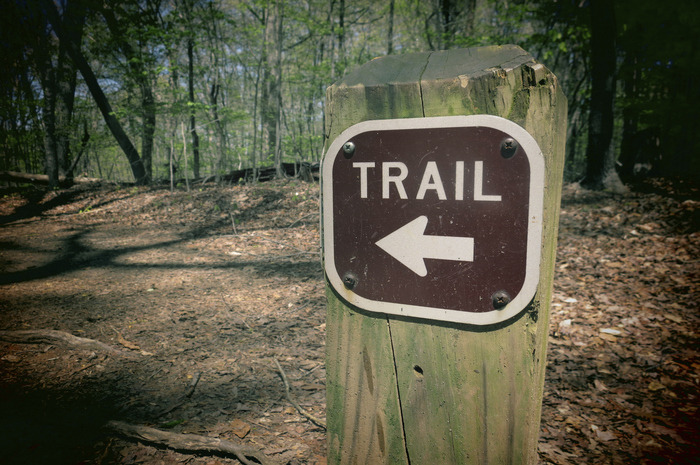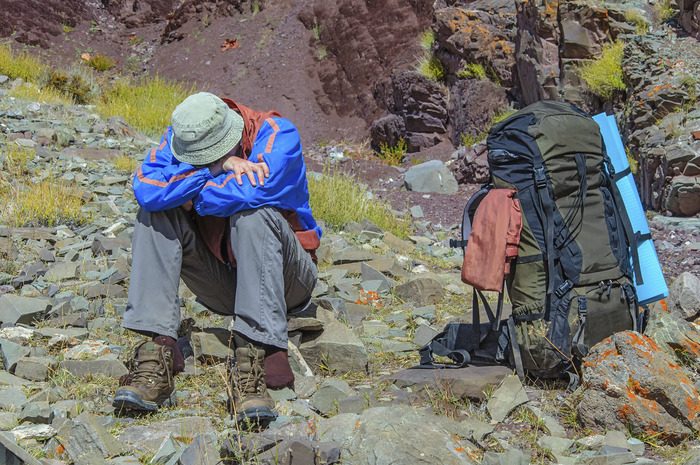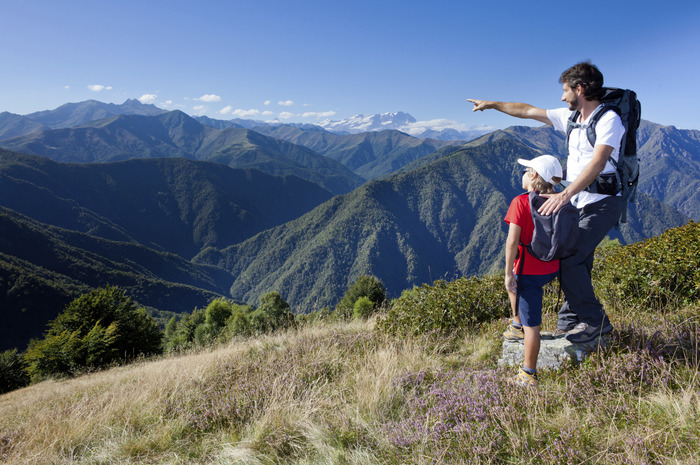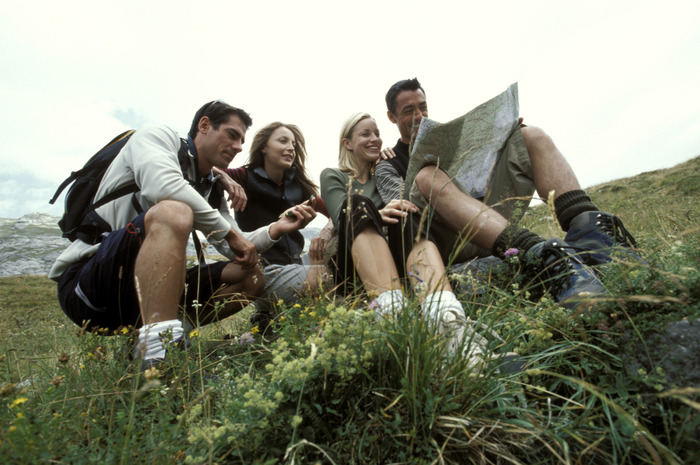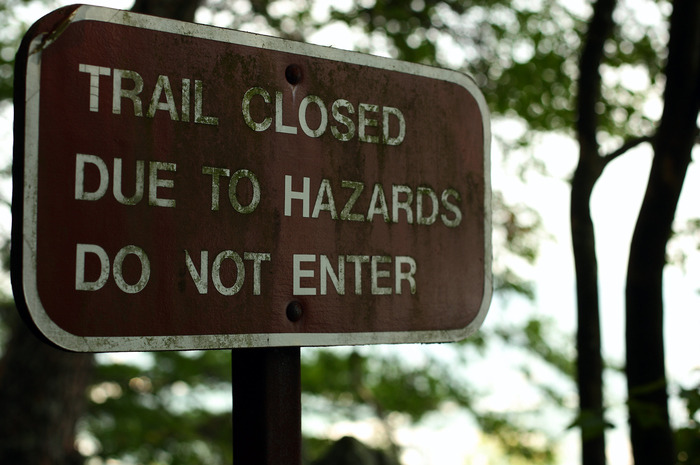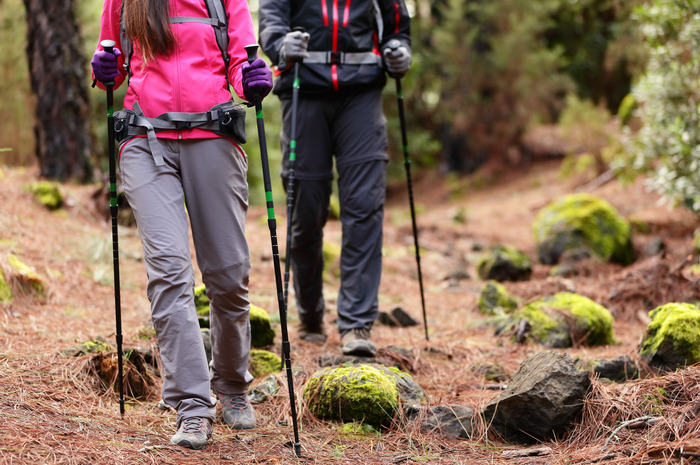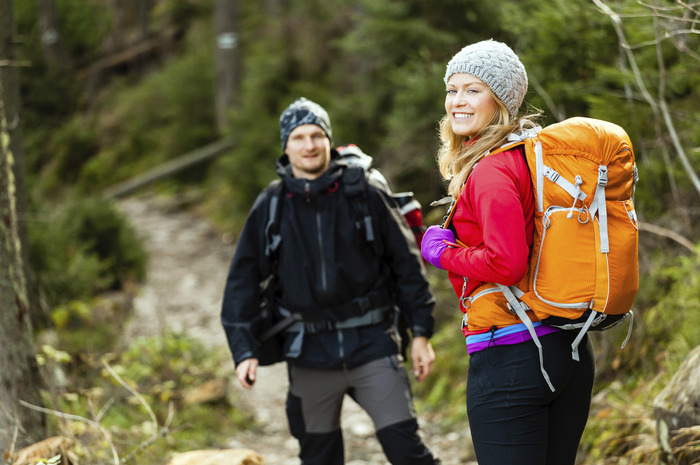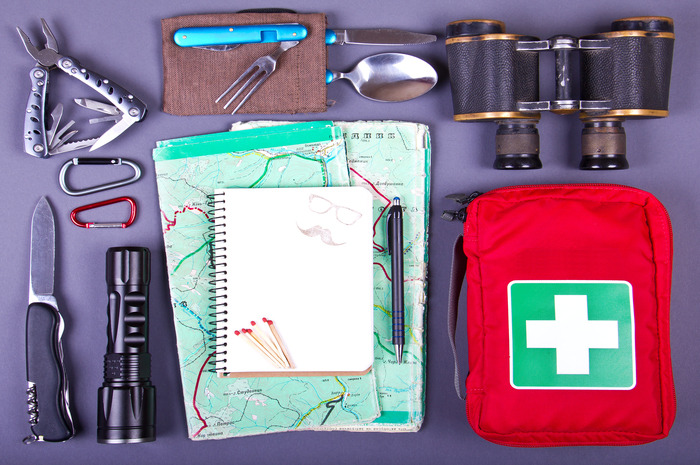Hiking Safety Tips Everyone Should Know
The warm weather is melting away the snow in the mountains and is washing away the winter blues. This is the time to reconnect with nature before temperatures get too high and beaches become the preferred retreat spot for the weekend.
According to science, people who spend time in parks cope better with stress, feel happier and have more self-esteem.
Hiking is a lot of but, if you're not careful, it can turn into a dangerous outdoor activity. Traveling in the backcountry is physically demanding – walking for hours with a heavy backpack is a challenge even for the fittest people.
No one is immune from getting injured or lost, but everyone can avoid severe consequences when they do their homework.
Dr. Gregory A. Miller, president of the American Hiking Society recommends that for every hike you:
1. Make a plan (which includes telling someone else and estimating how long the total hike will take, plus extra time)
2. Hike Smart
3. Go Prepared
4. Know your capabilities
And part of No. 2 is to not depend on technology. "A smart phone is no good if it does not work and even if you can get a signal and talk to rescuers, rangers, or friends, if you don't know where you are, what then?"
Planning
"Perhaps the biggest mistake is not planning adequately for a hike," according to Dr. Miller. "So often, hikers will anticipate the entry hike without taking into full account the return hike, even if it is mainly downhill." Not preparing for changing weather can be uncomfortable, if not life-threatening, along with miscalculation of daylight and then hiking in the dark without a flashlight, he adds. "The greatest enemies of a tired, inadequately prepared hiker are: panic; confusion; and lack of action."
Some threats are too rare
"Here's the truth," Miller says, "most hikers, even experienced ones, spend too much time and energy worrying about the scary but low percentage threats like bears, mountain lions and poisonous snakes (granted, in some areas these are real threats, but...) and not enough time concerning themselves with the dull but common dangers like germs, blisters and hypothermia." Dramatic changes in weather when not prepared for it, water crossings when you can't swim or have the skills/equipment to cross safely, and overdependence on technology to save the day are far-greater concerns, he adds.
Getting lost
This is the No. 1 threat, whether for day hiking or backpacking. "The trail you are following fades out. A storm obscures trail markers. You've misjudged how long it would take you to climb the peak and now you have to stumble along in the dark—lost, cold and frightened (enter our enemies, panic and confusion)," Miller says. Knowledge is your best defense. "Learn your trail maps, know how to use a compass and always leave word of your plans with friends and/or ranger," he adds.
Not looking back
Know your limitations
Hiking is not for everyone. People with balance issues or any limiting medical conditions are probably better off staying away. "Hiking should test your limits, but only up to a point," Miller says. "It is supposed to be fun. Altitude sickness is a special situation, as it can impact even the strongest, heartiest of hikers who think that because they can do anything at low elevation, the same goes once they go higher," he adds. Acute Mountain Sickness (AMS) occurs in 25 percent of people above 8,000 feet, according to Dr. Miller, with symptoms including confusion, fever, rapid heartbeat, shortness of breath, cough or extreme fatigue.
Accept that you may have to turn back
"People, who don't turn back when common sense, or others with common sense, tell them they can't make it up and back safely, are foolhardy and sometimes dangerous to themselves and others," Miller says. He gives children, who get tired and cold more quickly, dehydrate much faster and can get lost and disoriented more quickly, as an example. "This is irresponsibility at the highest level and often leads to problems, injury or even death—all bad outcomes that are avoidable," Miller adds.
Don’t keep your hiking route to yourself
"This is especially prevalent with people who think they are just taking a 'short hike' and it is silly to tell someone where they are going," Miller says. "With hiking, common sense and preparation are essential to have an enjoyable, trouble-free hike. Sometimes, more thought is put into preparing to go shopping at the mall than hitting the trail."
Analyze the trail
"Anyone can figure out whether a trail is too tough or dangerous," Miller says. "There is great information about trails and degrees of difficulty, with many trails restricted to very experienced, fit hikers." Hiking in rough terrain and bad weather, though it may have been sunny and warm starting out, can test the most seasoned hiker. "Also, we recommend hiking with a buddy or small group and knowing the capabilities of every member of the group."
Hiking poles
"I love my hiking poles," Miller says. "Many strong, younger hikers don't use hiking poles unless conditions are really extreme, but for most hikers, especially as you get older, they become an essential tool." There are countless benefits of using poles including improved balance, stability and improved posture, which improves breathing, according to Miller. Hiking poles also protect the knees, increase caloric expenditure due to higher use of upper body muscle groups, and improve power and endurance.
Dress properly
"Layering is the way to go," Miller says. "Stay away from cotton socks and t-shirts as you get colder." When it's really hot, you need to be able to shed layers, but still have good sun protection so you don't overheat. Appropriate footwear is essential. That's why we put it as #1 on the hiking essentials list," Miller adds. "Poor planning and improper clothing can lead to exposure, hypothermia, then confusion, poor decisions, risk of falling or getting lost and perhaps even death."
Hiking survival kit must-haves
Appropriate footwear
Map and compass/GPS
Extra water and a way to purify it
Extra food
Rain gear and extra clothing
Safety items: fire, light, and a whistle
First aid kit
Knife or multi-purpose tool
Sun screen and sun glasses
Daypack/backpack

